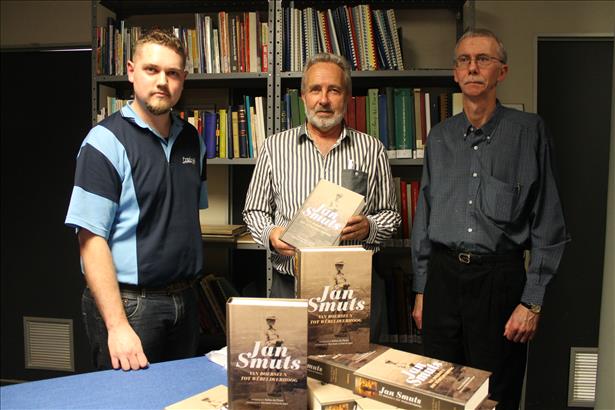Latest News Archive
Please select Category, Year, and then Month to display items
09 December 2020
|
Story UFS entral academic advising team
|
Photo Pixabay

It wasn’t easy, but we all got to this point because we stayed calm and made the effort to learn on even when it was difficult.
The University of the Free State (UFS) has remained committed to supporting you in every way possible, and as you prepare for the final assessments, remember to access the support tools you will need in order to successfully complete the 2020 academic year: https://www.ufs.ac.za/toolsforsuccess
Main exams are running from 30 November to 19 December 2020
All of the best, and break a pen in your upcoming final assessments. For those of you who will be graduating, we cannot wait to see you in that graduation attire; and those who still have some way to go, we cannot wait to serve you again in 2021 as we continue the pursuit of academic success!
Below are five main study tips that you can use for final assessment success:
1. Set a realistic study schedule
You might think that studying for eight hours straight for four days before the exam, will help you get through the work in time. See final edition of the #UFSLearnOn for more information.
2. Structure and organise your work
If your notes are organised, it is also easier for your brain to recall information, even when you become nervous during exams.
3. Practise with an old exam/semester test paper
Practice makes perfect, and although the final assessments might look different in how they are administered, it will still help to practise using old tests and exams.
4. Adapt your strategies to the content
What works for one module or even one learning outcome, might not be effective for another. You need to continually adapt your note-taking and study approaches. See #UFSLearnOn final edition for different study methods.
5. Healthy body, healthy mind
Your brain needs optimal care to perform at its best, and getting physically active (even if it is by jumping in one spot if space is limited) forces your body to release neurotransmitters responsible for positive emotions, which assist in retaining information in your memory …
Download the final edition of #UFSLearnOn that points you towards the resources you’ll need to ace your final assessments and end 2020 off on a high note!
Jan Smuts: from country boy to world stage; a reassessment
2017-11-10

At the book discussion of Jan Smuts: van boerseun tot wêreldverhoog;
'n herwaardering, were from the left: Con Robinson, Protea Bookshop;
Prof Kobus du Pisani; and Prof André Wessels from the Department
of History at the UFS.
Photo: Leonie Bolleurs
Prof André Wessels from the Department of History at the University of the Free State (UFS) was one of 20 co-authors of Jan Smuts: van boerseun tot wêreldverhoog; 'n herwaardering – a book compiled under the leadership of the general editor, Prof Kobus du Pisani, from North-West University. This unique history book deals with the different themes in the life of Smuts, rather than describing the events chronologically.
South Africans are almost afraid of their own history nowadays ... and yet another history book is being launched. Does it make sense? Yes, for two reasons.
The monster in the dark
One of the ways to overcome fear is through knowledge. The monster in the dark disappears when one understands that the street lights and tree branches are creating interesting shadows. The more one knows about something, the less scary it becomes.
The Greek Bible
This was possibly also Smuts’s approach. Knowledge was his passion, and even today he is considered as one of the best students of the University of Cambridge. Although very few people really understand his holism theory, Smuts experienced the complex world in a very simple way – as one – not as lots of different pieces functioning independently of each other.
Smuts could have made a success of any of his interest fields – law, botany, literature, and philosophy. However, politics laid three wars on his doorstep. While he is regarded as a militarist by some, he was actually a peacemaker. He played a role in the establishment of the League of Nations, and later the United Nations. Incidentally, he continued to read the Greek Bible while on commando during the Anglo-Boer War.
A colourful character
The second reason for yet another Jan Smuts history book is his fascinating humanness. Time should be spent on colourful characters such as this. It is worthwhile hearing the story of someone who had such a great impact locally and internationally – good or bad.